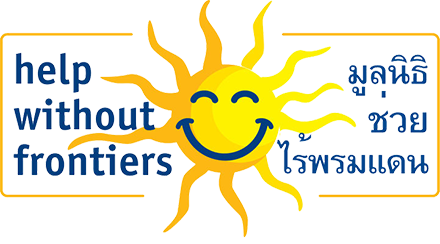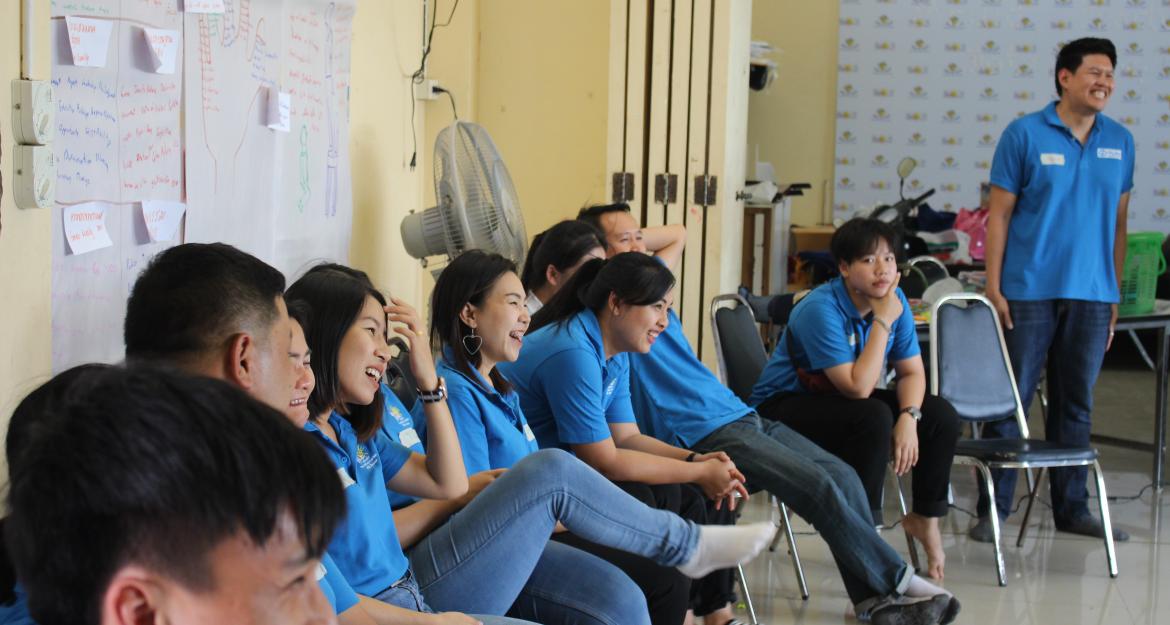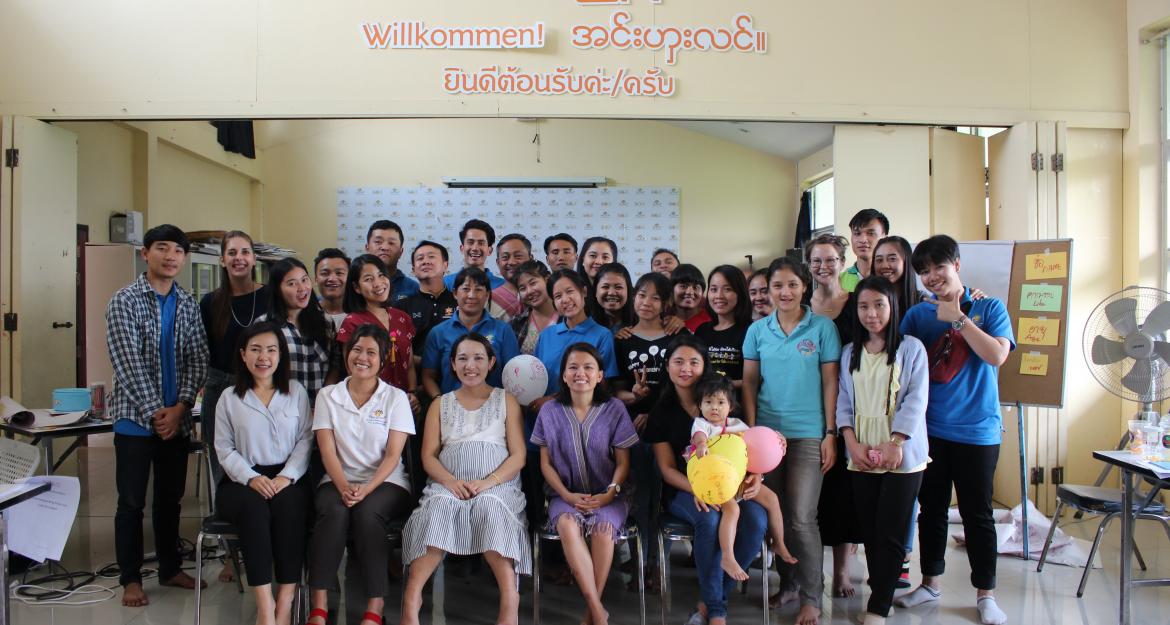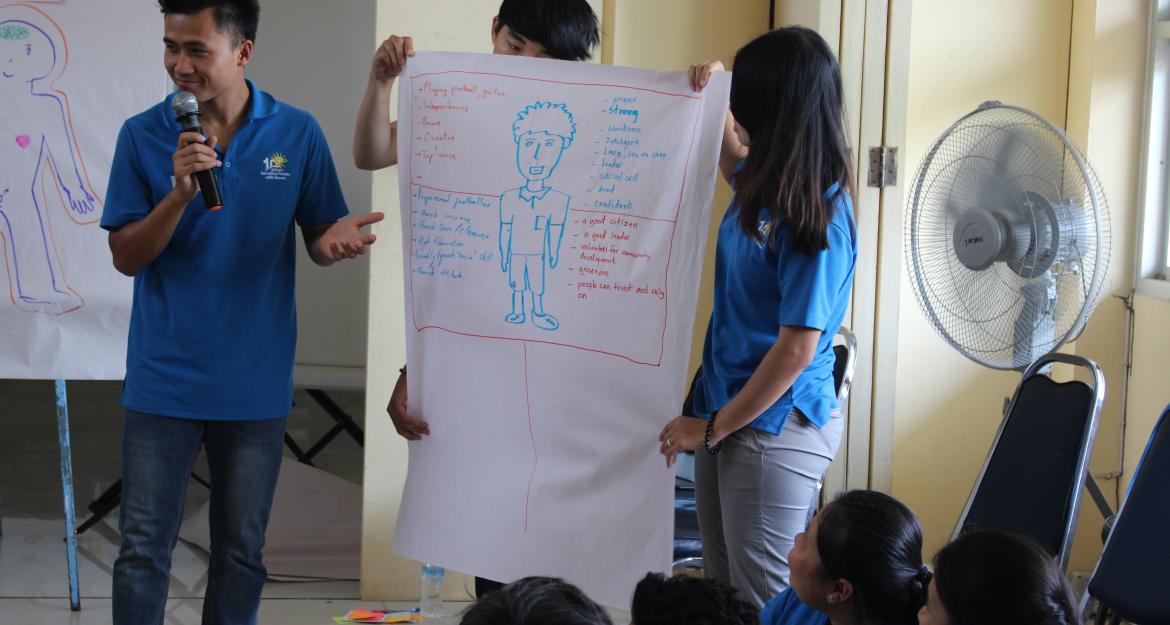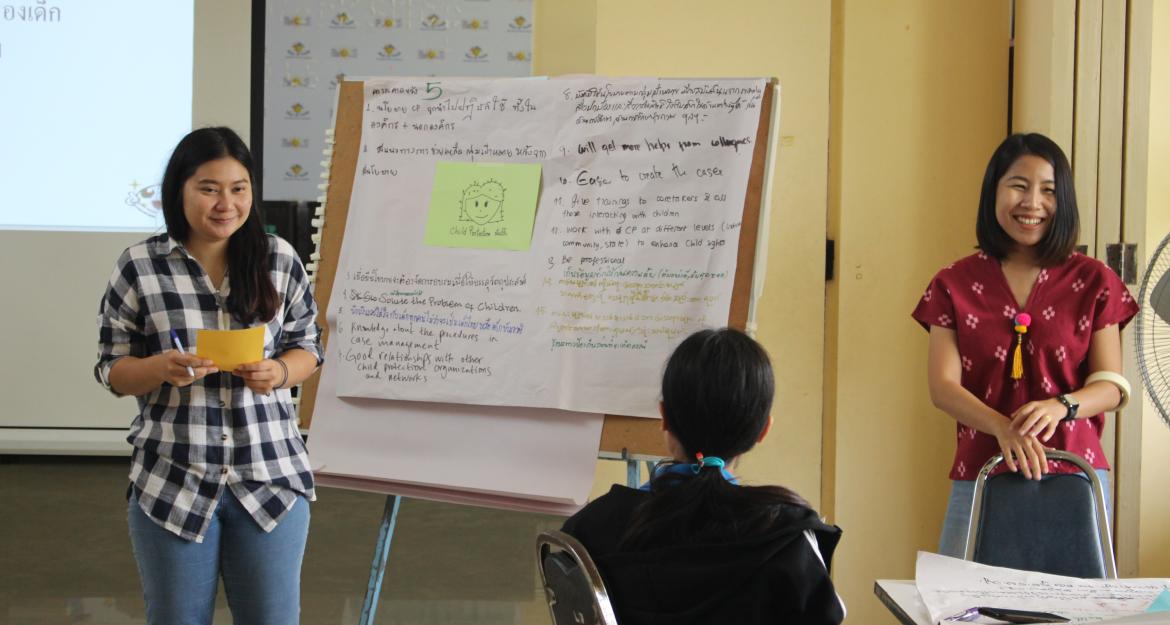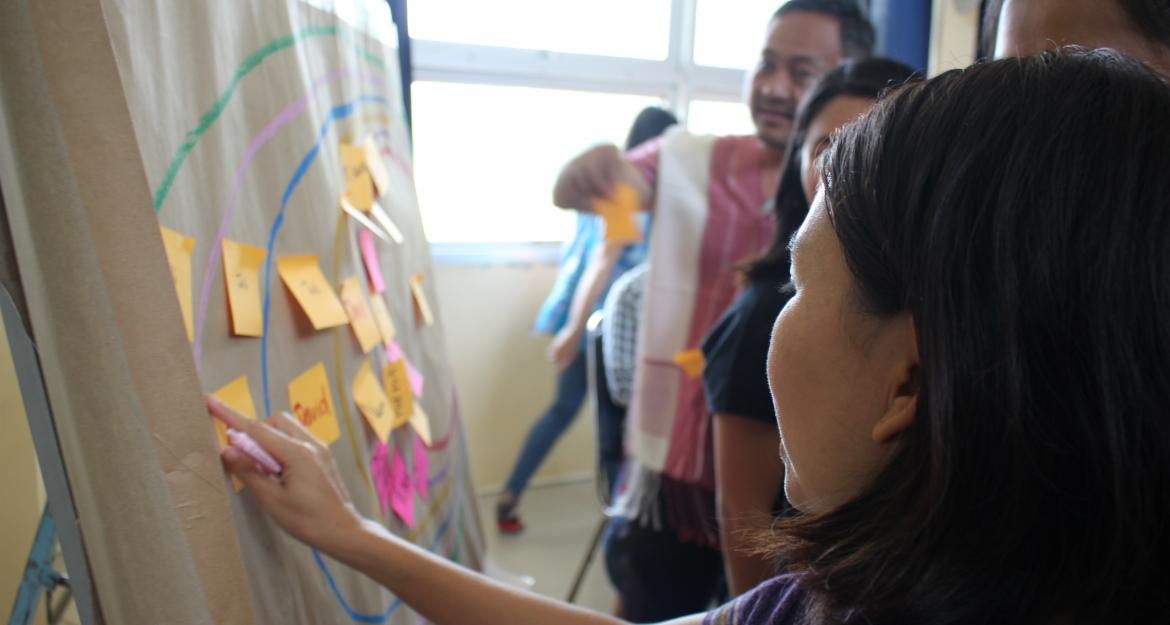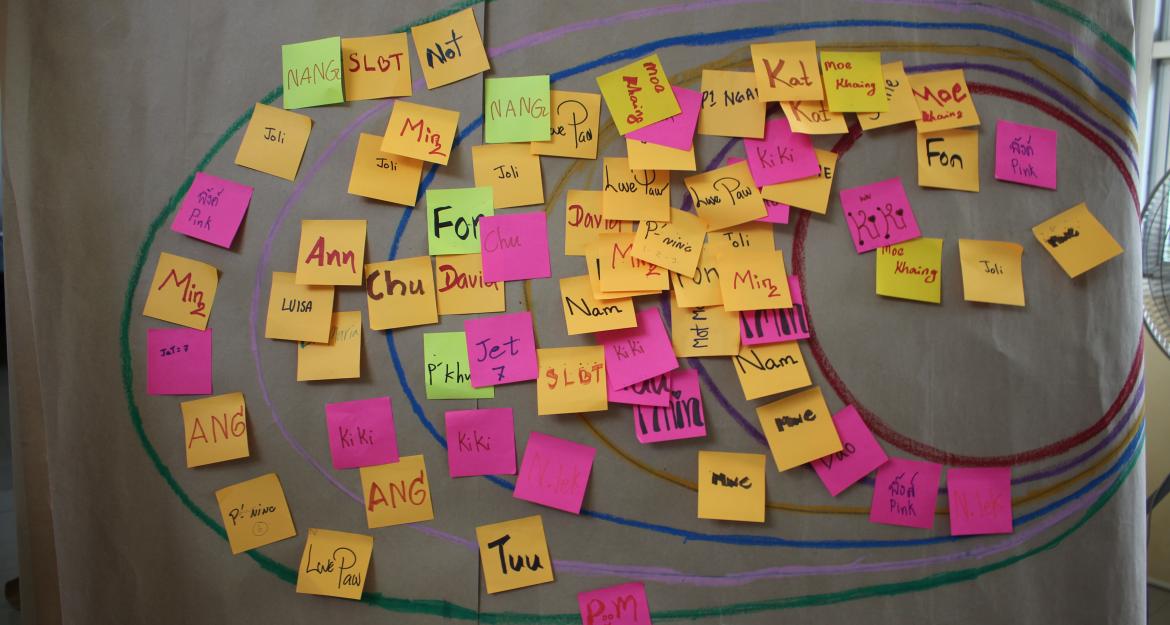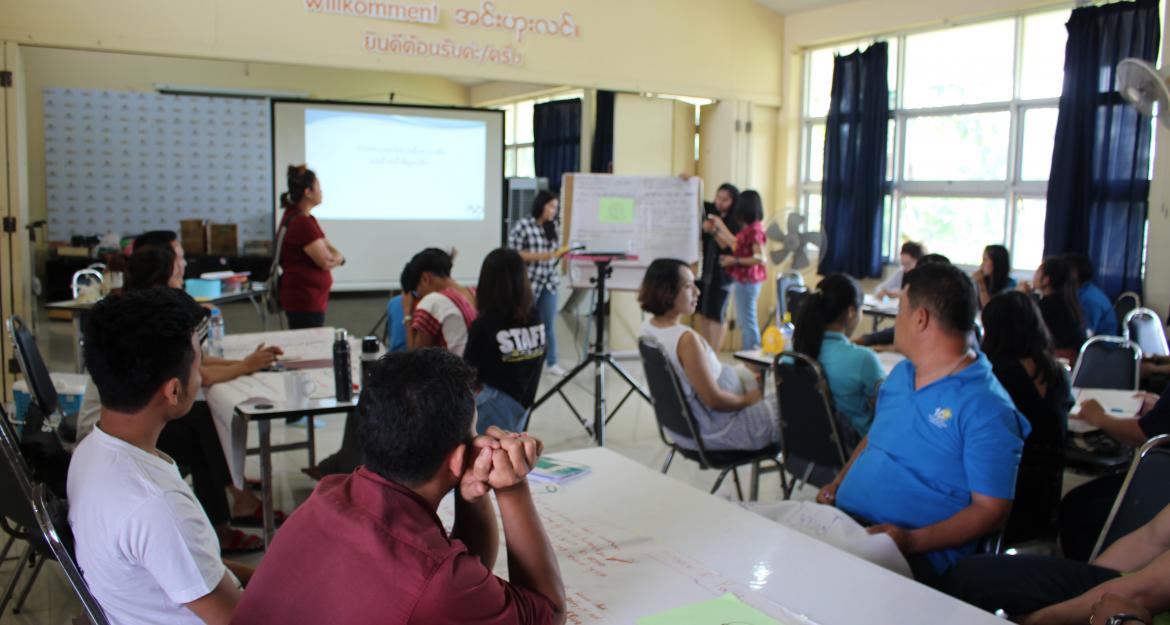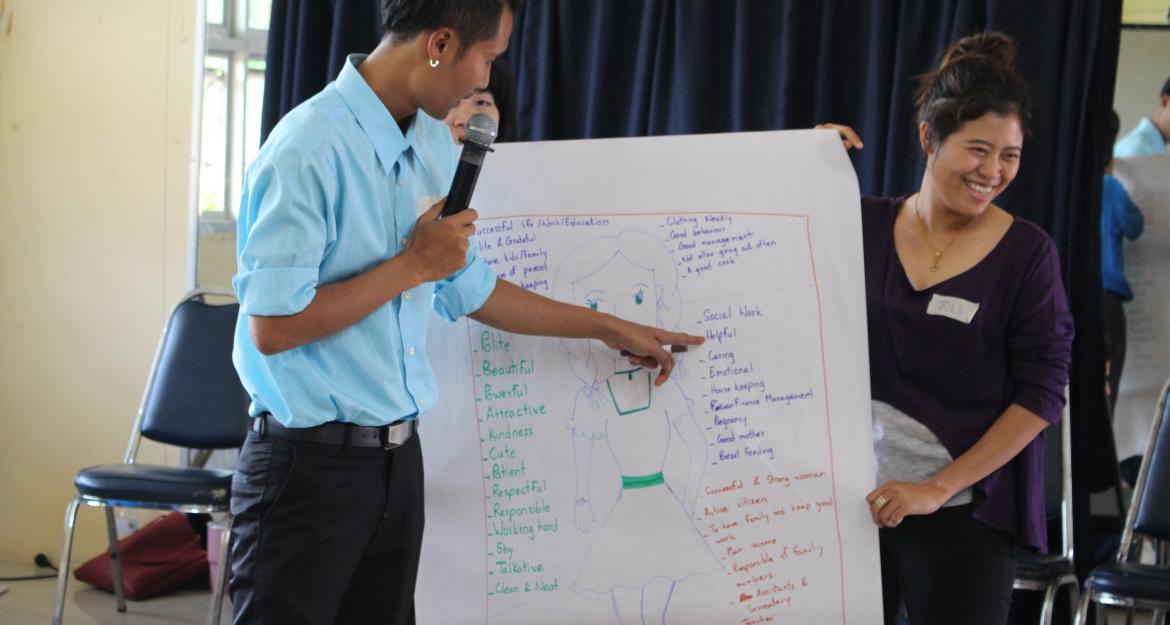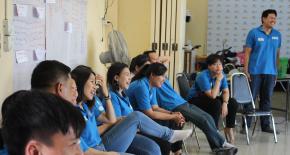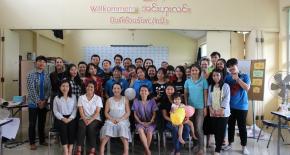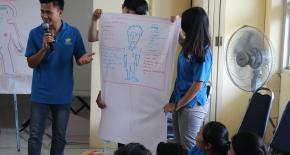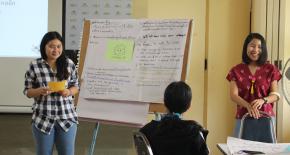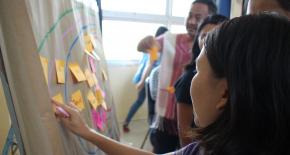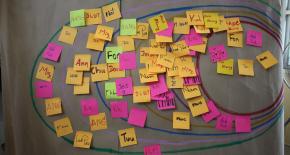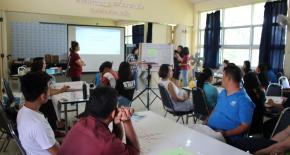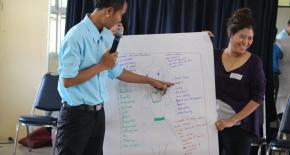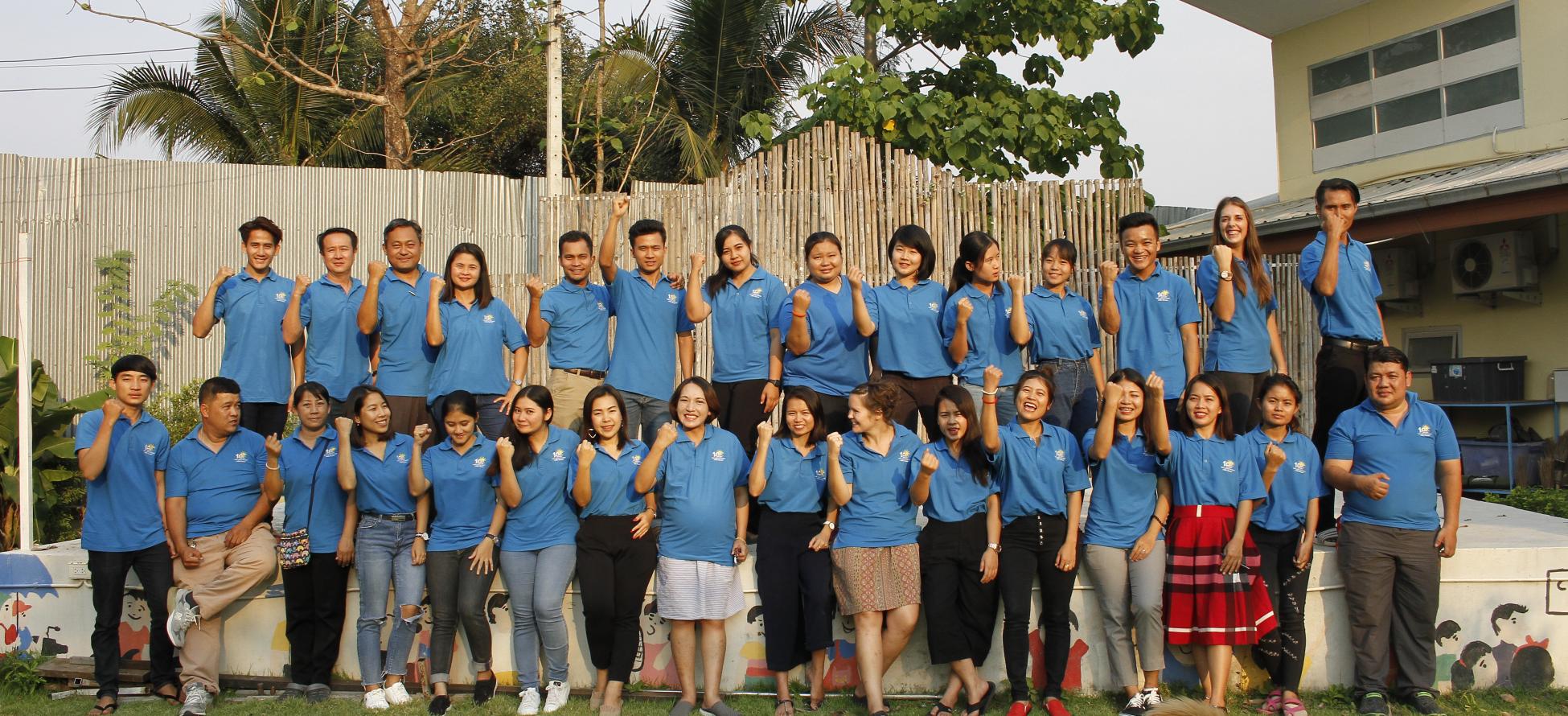
The staff of Help without Frontiers is composed of 33 people who have different cultural and social background in terms of nationality, ethnicity, religion, age, and gender. Despite our differences, at Help without Frontiers, we all share a high commitment to the cause of migrant education and it is our responsibility to ensure our work and activities are designed and implemented according to the highest standards of care, respect, and integration.
To ensure that all members of our staff have the knowledge and capacity to act according to our core principles and values, we receive regular capacity building trainings on a diverse range of topics. In March 2019, our staff took part to one training on Child Protection and to one on Gender Equality.
On 15 March 2019, 31 members of the staff of Help without Frontiers took part to a one-day training organised by our Child Protection Officer. During the training, we had the chance to discuss and share the expectations that children, parents, teachers, partners, donors, and all the members of our staff have towards our Child Protection and Safeguarding Policy. Together, we have discussed our proximity to children and how our work affects them. Some of us have one-to-one interactions with children, some others work with their parents and communities, other people's work has an indirect impact on children's lives. Depending on how closely we work with and for children, our work entails various roles and responsibilities and requires protection and safeguarding at different levels. We have then discussed different kinds of risk situations and the actions that we can take to prevent child abuses from happening. Finally, we have reviewed together the content of our Child Protection and Safeguarding Policy.
On 25 and 26 March, the staff of Help without Frontiers took part to a two-day training on Gender Equality Approach and Harassment, Bullying, and Discrimination Policy in Civil Society Organisation. The staff of Plan International Thailand came to our office in Mae Pa to organise activities, group discussions, and sessions to share and deepen our knowledge on issues related to gender as well as to build and improve the capacity of our organisation to cope with such issues. Through interactive activities, we have understood what does the definition of power entails and what we perceive being abuses of power. We have also explored together what we think are natural traits of women and men and which are the cultural norms that have been built by our societies and associated to gender. We have explored together the concepts of sexual orientation, gender stereotypes and labels, gender-based violence, gender identity, gender equality, and organisation culture.
Having a look at our organisation culture, we have discussed together which are our core values, what we like and dislike about each other behaviours, how we manage conflicts and how power is distributed throughout our organisational structure. Finally, we have learned the meaning and differences between harassment, bullying and discrimination as well as the consequences they have on people and what obligations they entail to ensure a policy is enforced.
Help without Frontiers recognises that the safety and welfare of children are paramount and we are committed to practices that protect them from harm. As such, we consider knowledge and awareness on child protection rights and policy of utmost importance in order to ensure the standards of care and well-being of children are ensured to the greatest extent, across all our project and activities.We are grateful for the great opportunities offered at Help without Frontiers to build our capacity and promote inclusion to the greatest extent.


